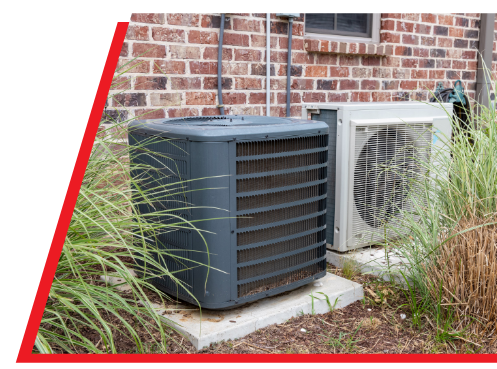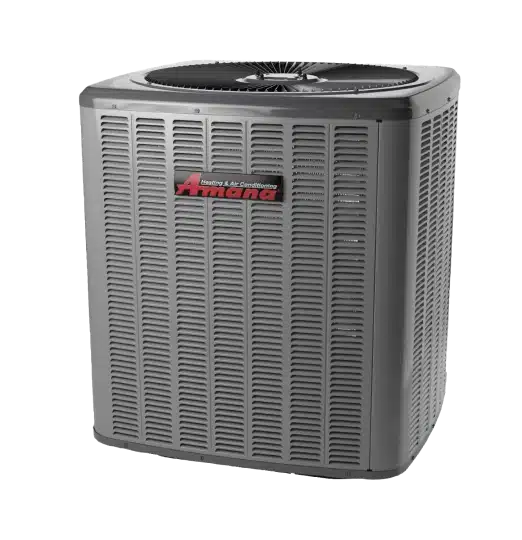It’s crucial to have a working AC unit if you live in Texas. Not only is the weather scorching and humid during the summer months, but air conditioning is also necessary to protect your home from extreme weather conditions. This blog post will discuss how Texas weather affects AC units and what you can do to protect yours. You’ll also learn about the average lifespan of HVAC systems as well as how to increase the longevity of your AC.
How Texas Weather Affects AC Units
Many factors can affect your AC unit. These include the following.
Heat
During the summer months, temperatures can reach well over 100 degrees Fahrenheit. This extreme heat puts a lot of strain on AC units and can cause them to break down.
Humidity
Not only is it hot in Texas, but the humidity can be overwhelming. This combination can cause problems for AC units, as they have to work harder to remove the moisture from the air. High humidity levels can cause condensation on the AC unit’s coils, which can lead to corrosion.
Dust and Dirt
The dust can clog up the filters and prevent proper airflow, leading to the unit working harder than it needs to and eventually breaking down.
What You Can Do to Protect Your AC Unit
To protect your AC unit and ensure it works optimally, you should perform the following.
Regular Servicing and Maintenance
You should have your AC unit serviced and maintained regularly. This will help to ensure that it is working correctly and can help to prevent breakdowns.
The maintenance work involves the following.
Changing the Filters
It would help if you checked and changed the AC filters every few months to help keep the unit clean and prevent dust and dirt from clogging up the system. You should use a high-quality filter that can trap more particles. We recommend that you change the air filter every three months or more often if you have pets.
Keeping the Area Surrounding the Unit Clear
Make sure that nothing is blocking the airflow around the AC unit. This includes keeping the area around the unit free from debris and ensuring that the vents are not blocked. There should be two feet of clearance around the unit for adequate airflow.
Installing a Programmable Thermostat
A programmable thermostat can help to save energy and money by allowing you to set the temperature to a setting that uses less energy when you are away. This will help keep your AC unit from working overtime when it is unnecessary.
Installing a UV Air Purifier
Installing a UV air purifier can help remove contaminants from the air, which can help improve your AC unit’s efficiency and prevent it from breaking down. Contaminants such as mold, bacteria, and viruses can cause the unit to work harder and eventually break down.
Keeping Your AC Unit Clean
Keeping your AC unit clean is vital for two reasons. First, it will help to improve the efficiency of the unit. Second, it will help to prevent the build-up of dust and dirt, which can lead to problems. Use a soft brush to remove any dirt and debris from the unit. You can also use a vacuum cleaner with a soft brush attachment to clean the unit. This includes cleaning the coils and lubricating any moving parts.
Checking the Ducts
You should check your ductwork each year for any holes or separation between the ducts. This can cause you to lose air unnecessarily and cause your AC unit to work harder than it should.
Covering Your AC Unit
When the weather is terrible, you should cover your AC unit to protect it from the elements. This will help to prevent damage from wind, rain, and hail. You can use a tarp or a plastic cover to protect your unit.
Checking the Freon Levels
You should check the Freon levels yearly to ensure they are at the proper level. If they are low, it can cause the unit to overwork itself and eventually break down. If you are uncomfortable checking the Freon levels, you can get a technician from Accurate Home Services to do this for you.
Factors Affecting the Longevity of Your AC
Many factors can affect the longevity of your AC unit. The factors you should be aware of include the following.
Type of AC Unit
The type of AC unit you have will affect its lifespan. Central AC units tend to have a longer lifespan than window units do. In addition, high-efficiency AC units tend to have a longer lifespan than standard units do.
Quality of the AC unit
The quality of the AC unit will also affect its lifespan. Higher quality units tend to last longer than lower quality units do.
Frequency of Use
If you use your AC unit frequently, it will not last as long as if you only use it occasionally since the more often it is used, the more wear and tear it will experience. A programmable thermostat can help ensure your AC only runs when it is needed.
Age of the Unit
Older units will have a shorter lifespan than newer units because they have been through more wear and tear and are more likely to break down. For instance, an AC unit that is ten years old is more likely to break down than a unit that is five years old.
Maintenance of the Unit
Units that are properly serviced and maintained will last longer than units that are not serviced regularly. Performing annual maintenance can help prevent problems and extend the unit’s life.
Climate
The climate in which the unit is used will also affect its lifespan. AC units in Texas experience a lot of wear and tear due to extreme heat and humidity. As a result, they could have a shorter lifespan than units in other parts of the country.
Location of the Unit
Units that are placed in direct sunlight will experience more wear and tear than units that are not. The sun can cause the unit to overheat and break down.
Warranty
Units that come with a warranty may last longer than units without a warranty. This is because the warranty will cover the cost of repairs or replacement if the unit breaks down.
Brand
The brand of the unit will also affect its lifespan. Some brands are known for making high-quality units that last long, while others make lower-quality units that do not last as long.
The Features
The features of the unit will also affect its lifespan. Units with more features tend to be more expensive, but they also tend to last longer than units with fewer features do. For example, a unit with a built-in timer may last longer than a unit that doesn’t have a built-in thermostat.
Your home’s AC unit is a vital appliance, particularly if you live in a hot climate like Texas. Taking steps to protect your unit from the weather and keeping it clean will help to extend its lifespan. If you are looking for an HVAC contractor in Texas, consider working with Accurate Home Services. We are a reputable company that offers high-quality AC services.
We can help you choose a suitable unit for your home and provide regular maintenance and servicing to keep your AC unit running smoothly. Our team of experienced professionals can also help you troubleshoot any problems that you may have with your unit. In addition, we offer ceiling fan installation, lighting services, and more. Contact Accurate Home Services today to learn more about our services.




